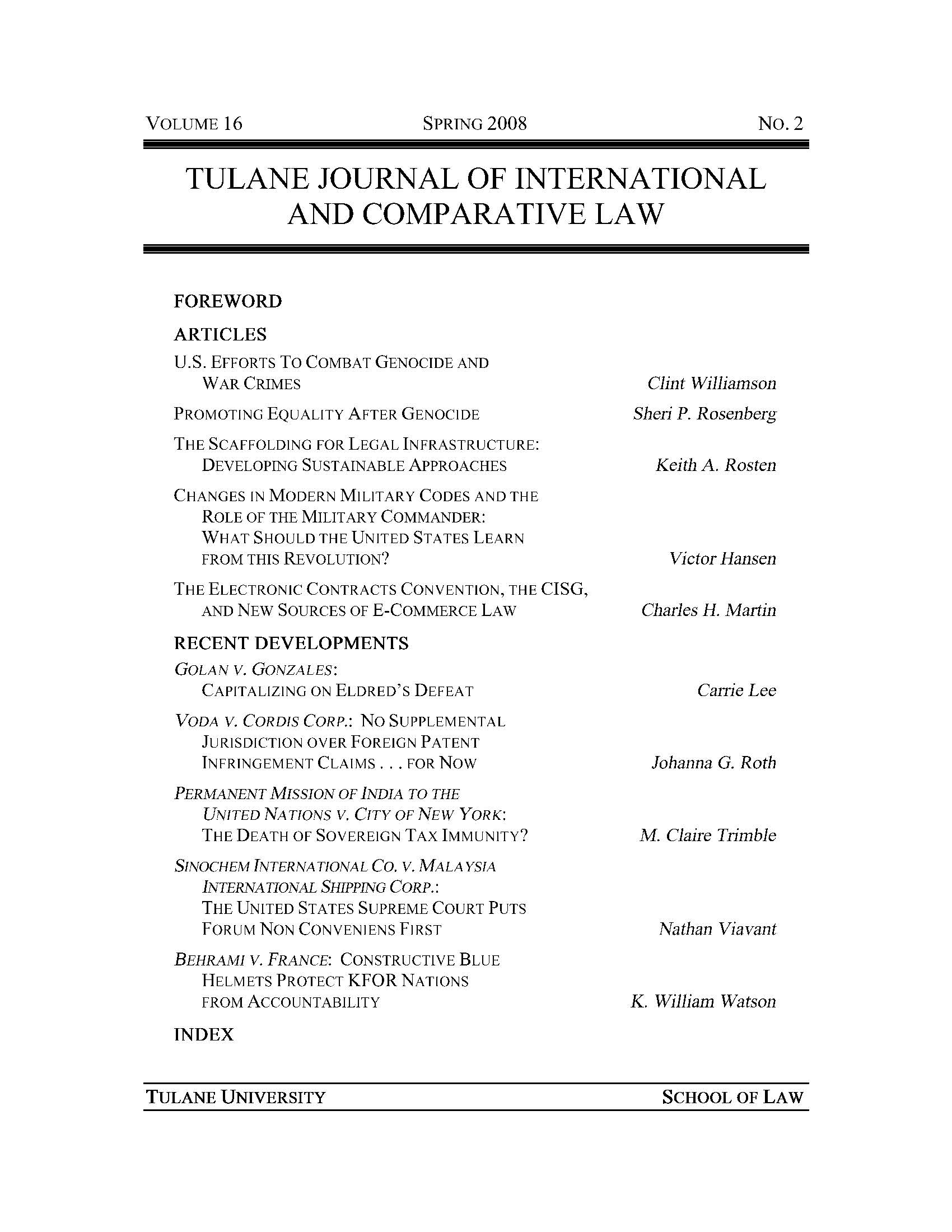Promoting Equality After Genocide
Abstract
The value of equality has little currency after genocide and ethnic cleansing. Restoring that
value is no easy feat. Paramount, though not singular, in this struggle for equality is the role of the
law. A State establishes its common legal rights and duties through its legal institutions, which
define the values and character of the nation. Legal institutions mediate these values and norms
and through legal pronouncements provide a template for future civic engagement and social
interaction. Equality and antidiscrimination jurisprudence is particularly important during the
delicate period of transition after genocide, because it grounds within society the normative shift in
principles underlying the cultural understanding of equality. Specifically, this Article addresses the
question: what can equality mean in a postgenocidal environment that rests on ethnic inequality or
domination? An analysis of the antidiscrimination jurisprudence of the quasi-national legal
institutions established under the General Framework Agreement for Peace in Bosnia and
Herzegovina (GFAP) provides the forum for this exploration. A review of the Constitutional
Court’s and the Human Rights Chamber’s antidiscrimination jurisprudence reveals that each court
has taken a formal approach to equality. This Article argues that a formal approach to equality is
not appropriate in the context of Bosnia or other countries recovering from ethnic strife. Only a
substantive approach to equality, which addresses historical inequality, will stimulate a
jurisprudence that can help to heal the long-term effects of genocide. A robust development of
substantive antidiscrimination jurisprudence, consciously developed to overcome the continuation
of institutionalized social conflict, will ultimately fulfill equality’s promise as mandated by the
GFAP. Reflecting on the Bosnian experience, certain legal principles concerning equality and
antidiscrimination are revealed that should be applied to countries recovering from mass atrocities
based upon ethnic identity in today’s world. The international community is actively engaged in
rebuilding the legal systems of countries with deep ethnic divides including Iraq, Afghanistan,
Kosovo, and Sudan. Like in Bosnia and Herzegovina (BiH), nationally ingrained inequality exists
and must be defeated in all postconflict communities in order to create an environment where
different nations can exist under one State banner.
